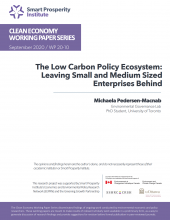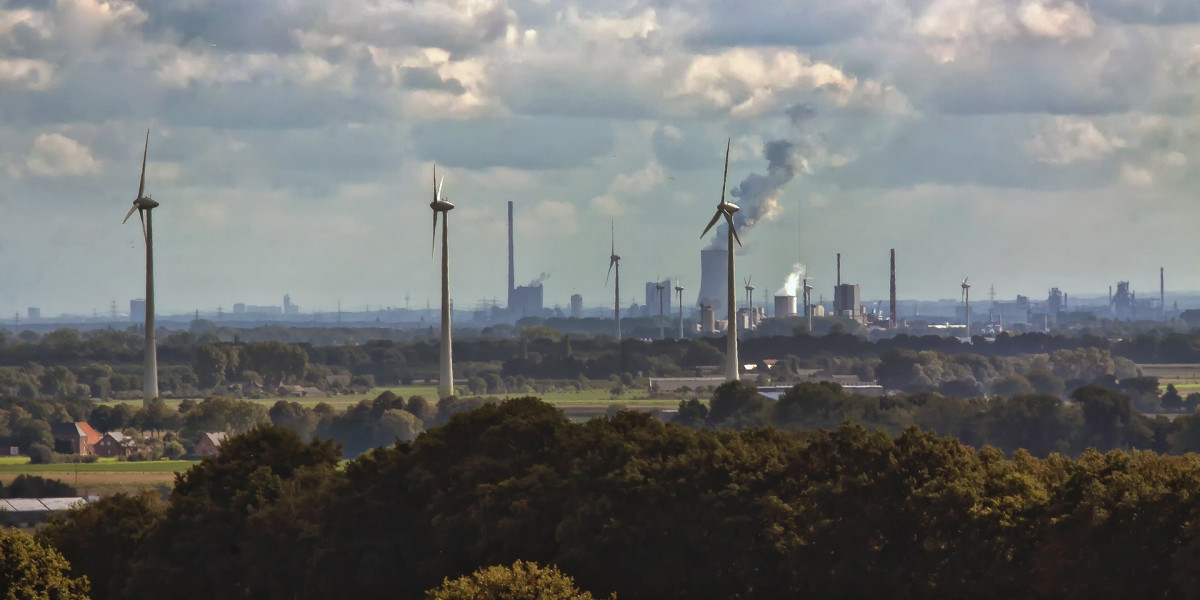The private sector will play a significant role in the emergence and momentum driving Canada’s transition to a low carbon economy. However, to date there have been relatively few descriptive analyses of the emission reduction policy ecosystem in which Canadian firms are currently operating. This study provides such analysis based on a dataset of 178 policies adopted by the Canadian, Ontario, as well as selected municipal governments.
The primary finding of this work is that there is limited support or engagement with small and medium sized enterprises (SMEs)—firms with fewer than 500 employees—to reduce emissions by any order of government. This omission of SMEs in government climate change programming is significant: Canadian SMEs currently produce approximately 30% of national emissions which totals more than the combined annual emissions of Quebec, Manitoba, Saskatchewan, and the Atlantic Provinces. A growing body of research demonstrates that SMEs lack the capacity to make this transition without government-led support, and so it is unlikely that these limited programs will produce robust results among SMEs. Canadian SMEs comprise 98% of Canadian businesses, employ more than 70% of the Canadian private sector workforce, and overall represent the driving force of Canadian business culture. Driving the transition towards a low carbon economy will require a groundswell of support from SMEs in particular, and yet SMEs remain an untapped resource for pursuing transformative national change in the private sector.
READ THE WORKING PAPER: The Low Carbon Policy Ecosystem - Leaving Small and Medium Sized Enterprises Behind
The Clean Economy Working Paper Series disseminates findings of ongoing environmental and clean economy work conducted by researchers from a range of disciplines. These working papers are meant to make results of relevant scholarly work available in a preliminary form. Although these papers have not undergone a peer-review process, they meet general standards of scholarly excellence. The views expressed in these working papers are those of the authors and do not necessarily reflect the opinions of Smart Prosperity Institute.



